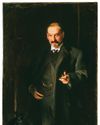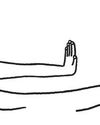
Identity evolves. Social categories shrink or expand, become stiffer or more elastic, more specific or more abstract. What it means to be white or Black, Indian or American, able-bodied or not shifts as we tussle over language, as new groups take on those labels and others strip them away.
On August 3, 1989, the Indigenous identity evolved. Moringe ole Parkipuny, a Maasai activist and a former member of the Tanzanian Parliament, spoke before the U.N. Working Group on Indigenous Populations, in Geneva— the first African ever to do so. “Our cultures and way of life are viewed as outmoded, inimical to national pride, and a hindrance to progress,” he said. As a result, pastoralists like the Maasai, along with hunter-gatherers, “suffer from common problems which characterize the plight of indigenous peoples throughout the world. The most fundamental rights to maintain our specific cultural identity and the land that constitutes the foundation of our existence as a people are not respected by the state and fellow citizens who belong to the mainstream population.”
Parkipuny’s speech was the culmination of an astonishing ascent. Born in a remote village near Tanzania’s Rift Valley, he attended school after British authorities demanded that each family “contribute” a son to be educated. His grandfather urged him to flunk out, but he refused. “I already had a sense of how Maasai were being treated,” he told the anthropologist Dorothy Hodgson in 2005. “I decided I must go on.” He eventually earned an M.A. in development studies from the University of Dar es Salaam.
Bu hikaye The New Yorker dergisinin February 27, 2023 sayısından alınmıştır.
Start your 7-day Magzter GOLD free trial to access thousands of curated premium stories, and 9,000+ magazines and newspapers.
Already a subscriber ? Giriş Yap
Bu hikaye The New Yorker dergisinin February 27, 2023 sayısından alınmıştır.
Start your 7-day Magzter GOLD free trial to access thousands of curated premium stories, and 9,000+ magazines and newspapers.
Already a subscriber? Giriş Yap

BADDIE ISSUES
\"Wicked\" and \"Gladiator II.\"

LET'S MAKE A DEAL
\"Death Becomes Her\" and \"Burnout Paradise.\"

ANTI HEROES
\"The Franchise,\" on HBO.

FELLOW-TRAVELLERS
The surprisingly sunny origins of the Frankfurt School.

NOW YOU SEE ME
John Singer Sargent's strange, slippery portraits of an art dealer's family.

PARIS FRIEND - SHUANG XUETAO
Xiaoguo had a terror of thirst, so he kept a glass of water on the table beside his hospital bed. As soon as it was empty, he asked me to refill it. I wanted to warn him that this was unhealthy - guzzling water all night long puts pressure on the kidneys, and pissing that much couldn't be good for his injury. He was tall, though, so I decided his insides could probably cope.

WILD SIDE
Is Lake Tahoe's bear boom getting out of hand?

GETTING A GRIP
Robots learn to use their hands.

WITHHOLDING SEX FROM MY WIFE
In the wake of [the] election, progressive women, who are outraged over Donald Trump's victory at the ballot box, have taken to social media with public, vengeful vows of chastity. - The Free Press.

DEADLINE EXTENSION
Old age, reborn.